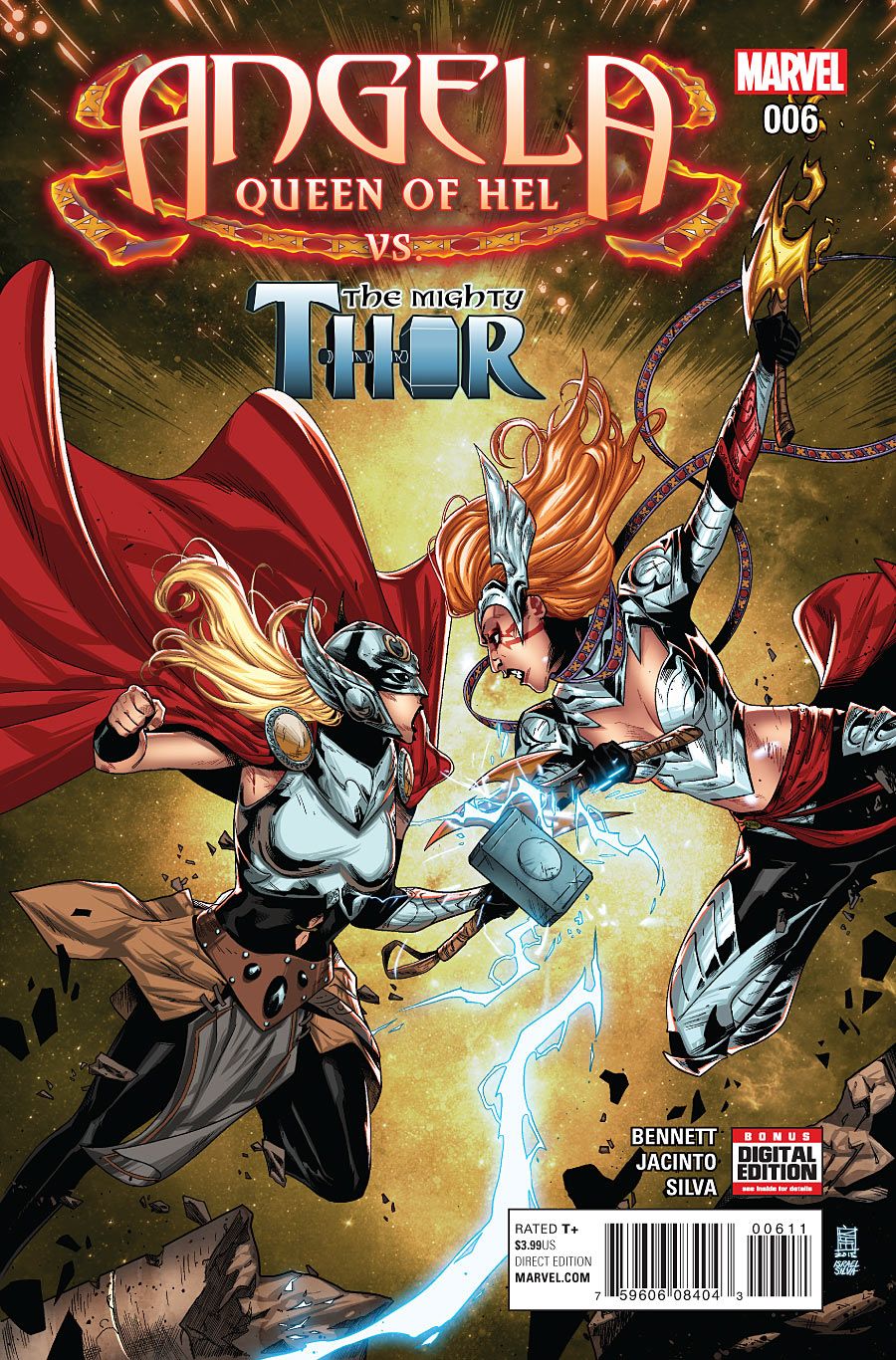"Angela: Queen of Hel" #6 begins its second arc with high humor and style. Marguerite Bennett and Kim Jacinto establish Angela, Sera and Leah's new life in Brooklyn just in time to shake it all up with a series of horrific magical deaths. The creative team's warmth toward these characters is infectious, and any too-arch or too-cutesy moments are easy to forgive in light of the ruthlessly efficient plot and well-earned character moments. Best of all, this is a genuinely funny issue. I'd have been sorry to see "Angela: Queen of Hel" go in any circumstance, but issue #6 just made me even sorrier.
Marvel Cancels "Angela: Queen of Hel," "Howling Commandos of SHIELD"
Unfortunately for those who might have been looking forward to it, the cover-touted confrontation with Thor isn't much of an event. After a few pages, it's quickly over and the heroes get to solving the real problem: the plague of New Yorkers who have been suffering hexed, karmic deaths. Bennett and Jacinto handle this element of the plot particularly well. The victims are conspicuously unlikeable -- casually racist, vicious to waiters, belligerent toward the homeless -- and that could tempt a creative team to revel in their deaths. However, Jacinto draws most of the violence off-panel or in a whirl of ramen, focusing on the build-up and the aftermath rather than zeroing in on the gore or suffering. This approach doesn't detract from the freakishness of the deaths; rather, the death by tearing insects was made all the more unsettling by the lack of bloodshed. Bennett's dialogue further emphasizes the horror of what's being done; nasty as the victims might be, there's no suggestion they "deserve" to die. For a book that's so kind in other places, it would have been weird for the plot to turn cathartically vindictive, and the creative team smartly avoids that.
As with many reference-heavy series, some of the dialogue can feel a little too self-satisfied or artificial. (This issue's "Hamilton" reference felt particularly shoehorned in.) Aside from these missteps, though, "Angela: Queen of Hel" is overwhelmingly funny. Bennett offers some particularly good lines for fan-favorite hellhound Thori. Turning over a new leaf and offering "constructive ugliness," he provides some of the best moments in the issue with real-talk insults like, "You use sarcasm and disinterest as a shield." (The fact letterer Clayton Cowles keeps these insults in all-caps, Asgardian font just makes them all the better.)
Jacinto's detailed, angular faces are ideal for a book with this much back-and-forth. From sarcasm to annoyance, affection to surprise, Jacinto conveys all the smaller emotional cues that this dialogue needs to work. He also captures the drama of the "big" panels. As Angela and Thor race around New York, Angela's ribbons wrap around New York landmarks; I could really feel them hover and whirl, and it would be easy for a device like that to look static.
Jacinto generally balances the mythic and the intimate quite well. He gives Sera and Leah's heart-to-heart its weight and tenderness, while providing speed and fury for the clash between Thor and Angela. However, I sometimes wish he and colorist Israel Silva would ground their backgrounds more firmly. The bursts-of-color approach detracted from the transition into the Faustian Queen's realm; rather than feeling like an intentionally gradual change, it made me feel like I'd missed something.
All told, "Angela: Queen of Hel" #6 is a bit of a heartbreaker. It shows all the fun and potential of Angela and Sera's new lifestyle as mercenary moms, and Bennett has clearly gotten comfortable with the Asgardians-and-Angels corner of the Marvel Universe. I'll miss this series in my pull list.

